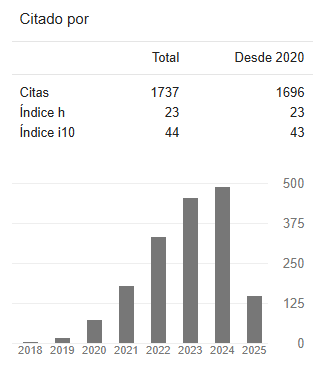Taboo and euphemism: the forms of speech in modern Quito society
DOI:
https://doi.org/10.29166/catedra.v1i1.769Keywords:
euphemism, meaning, Quito, tabooAbstract
Words, in addition to changing their external form, also change their meaning, taboo and euphemism are two concepts that are part of that change of meaning that occurs in the communication act. That change obeys to factors coming from a social sensibility in certain times and circumstance. Its use is common on all social media, in order to avoid naming things.
The objective of this article is to describe some euphemisms used in Quito. The aim is to demonstrate through a descriptive research if such forms have been in use for a long time or if they have changed in the last years. Besides, the different factors that define their use are determined.
Grammar and pragmatics help to analyze the sociolinguistic study of the population, as well as the discourse used to contrast the selected social variables. Additionally, the different circumstances and spaces in which euphemisms are used are detailed as well as the way these present as a colonization heritage. This analysis will allow understanding and valuing the inherited culture.
Downloads
References
Brown Gfrorer, B. (2015). Tabú y eufemismos. Revista de la Universidad de Costa Rica, 41(60),83
Calvo Shadid, A. (2011). Sobre el tabú, el tabú lingüístico y su estado de la cuestión. Revista Káñina, 35(2), 63
Domínguez, P. J. C. (2004). La función social y cognitiva del eufemismo y del disfemismo. Panace, 5(15), 45
Feitshans, B. (Productor) y Cocheff, T. (Director). (1982). Rambo: Primera Sangre [Película]. Estados Unidos: Anabasis N.V. Elcajo Productions.
García, E. (2016). Quiteñismos. Quito-Ecuador: Alfaguara
Hernández, G. M. (2001). El lenguaje militar. tabú, eufemismo y disfemismo. Tonos Digital: Revista Electrónica De Estudios Filológicos, (1), 8.
Liu, J. (2016). Análisis sociopragmático del eufemismo. Tesis de Maestría, Universidad de Oviedo, España
Morales, H. L. (2005). Sociolingüística del tabú. Interlingüística, (16), 7-20.
Reyes, M., & Domingo, J. (2006). Se cazan más moscas con miel que con vinagre: Eufemismos como construcción social. Revista Electrónica De Psicología Iztacala, 9(3)
Sandoval, I (2014, 21 de mayo). Uso del término afro descendiente. Diario El Universo.
Downloads
Published
Versions
- 2020-09-03 (2)
- 2018-09-27 (1)









